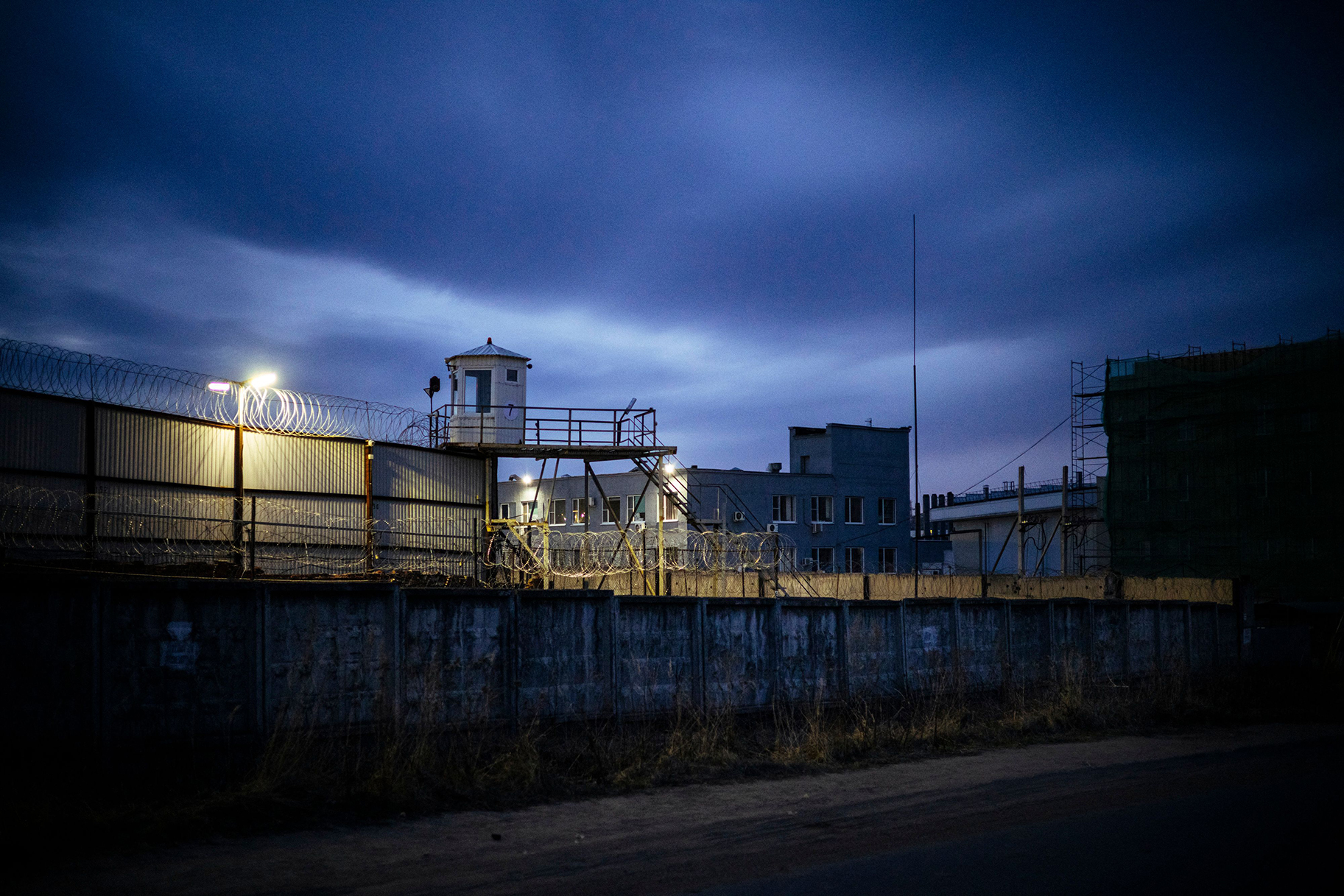Create a free profile to get unlimited access to exclusive videos, breaking news, sweepstakes, and more!
Brittney Griner Faces ‘Grim’ Conditions At Russian Penal Colony After Loss Of Appeal
A member of the Voices of Russian Opposition spoke out about the treatment of Russian detainees as Brittney Griner faces nine years in prison.

WNBA star Brittney Griner faces “grim” conditions at a Russian penal colony after losing an appeal of her 9-year prison sentence on Tuesday.
Advocates, former prisoners and government officials paint a picture of a harsh penal system in Russia, plagued by overcrowding, food shortages, physical and sexual violence and a lack of necessary health care.
Some experts believe Griner, who was arrested at a Russian airport in February after she was found carrying vape canisters containing cannabis oil, could face additional hardships during the lengthy prison sentence as she's a Black, openly gay female.
“Russian prisons are grim, even relative to prisons in other countries. And the Putin regime has ramped up hostility towards gays and lesbians as part of its broader policy of hard-line nationalism,” Muriel Atkin, a Russian history professor at George Washington University, told NBC News.
With the decision handed down Tuesday in Moscow, Griner is expected to be transferred to a penal colony, which are often located in “sparsely populated parts of the country such as the Far North and Far East,” according to a 2017 report from Amnesty International.
RELATED: Brittney Griner's Appeal Of Her Sentence Rejected By Russian Court
“The practice of sending prisoners into exile in distant parts of the country is a tradition that was established centuries before the Soviet period and has led to a unique penal culture in Russia that combines imprisonment and exile,” the report states. “The size of the country combined with the location of the penal colonies means that prisoners must be transported over great distances to reach the colonies where they are to serve their sentences.”
Transportation in “specially designed train carriages and prison trucks” known as “Stolypins” can take a long time, with the report stating, “It is common for journeys to last a month or more."
The conditions within the colonies are equally as stark with as “many as 60 women in the same large dorm style room,” according to data from Penal Reform International, an international nongovernmental organization working to reform the penal and criminal justice systems.
“Bunk beds are situated in two rows and each woman has a bed, chair and a half of a small bed-side table,” they wrote. “Women have access to sinks and toilets at all times but only have one ‘wash day’ once a week where they can shower.”
A 2021 Russia Human Rights Report by the U.S. Department of State found the facilities can also be rife with “physical and sexual abuse by prison guards” and prisoner-on-prisoner violence.
“Conditions in prisons and detention centers varied but were often harsh and life threatening,” the report stated. “Overcrowding, abuse by guards and inmates, limited access to health care, food shortages, and inadequate sanitation were common in prisons, penal colonies, and other detention facilities.”
Russia’s penal institutions house an estimated 520,000 inmates and have evolved from the Soviet Gulag era, according to The Associated Press.
Olga Romanova, head of the prisoners’ rights group Rus Sidyashchaya told the news outlet Russian President Vladimir Putin was “satisfied” with the prisons because they serve as “a place where everyone is afraid to go.”
After spending a year of her sentence in a penal colony in the Republic of Mordovia, Pussy Riot band member Nadezhda Tolokonnikova wrote a letter to a Russian media outlet in 2013 decrying the conditions, which she said included 17-hour days working in a sewing shop, regular assaults on prisoners, sleep deprivation and a lack of basic hygiene, according to NBC News.
Trevor Reed, a former U.S. Marine who spent two years in a prison colony, experienced similar conditions.
According to Jonathan Franks, who consulted in the negotiations which eventually freed Reed, Reed performed forced labor, lost more than 40 pounds and suffered from health problems after being forced to eat food like “spoiled meat that the prison cats wouldn’t even eat.”
Anna Berbeneva, whose husband was arrested in 2014 for protesting Russia’s first invasion of Ukraine, now works as a member of the Voices of Russian Opposition and communicates regularly with those behind bars in Russia.
She told NBC News that prisoners are often left without any means of protection and face abuse even from those tasked with running the facilities.
“They can torture them, they can threaten them, they can blackmail them or do whatever they want. They’re like a toy to the jail administration,” she said. “Nobody can protect them.”
Griner’s agent Lindsay Kagawa Colas is still hopeful President Biden’s administration might be able to negotiate her release, but said in a series of tweets this week that “we do not have time” to wait.
“At any moment something might happen, and we must remain focused and unified in our call to return BG to her family immediately,” she wrote.
Colas also criticized the court’s decision to uphold the 9-year prison sentence, saying that Griner’s celebrity status had likely played a role in the decision.
“Brittney Griner’s nine-plus year sentence is regarded as harsh and extreme by Russian legal standards,” she wrote. “Today’s disappointing, yet unsurprising, appeal outcome further validates the fact that she is being held hostage and is being used as a political pawn.”
When asked about the possibility of a prisoner swap on Wednesday, Kremlin spokesperson Dmitry Peskov said any negotiations must be “conducted in silence under a tight lid,” according to Fox News.
For now, it seems that Griner will remain in Russian custody, a prospect her wife Cherelle Griner described to “CBS Mornings” earlier this month as “terrifying.”
"I mean, this is my life and so I'm sitting there like, 'Do we get her back? Do I ever get to see my wife again?' Like, what happens here?” Cherelle said.


























